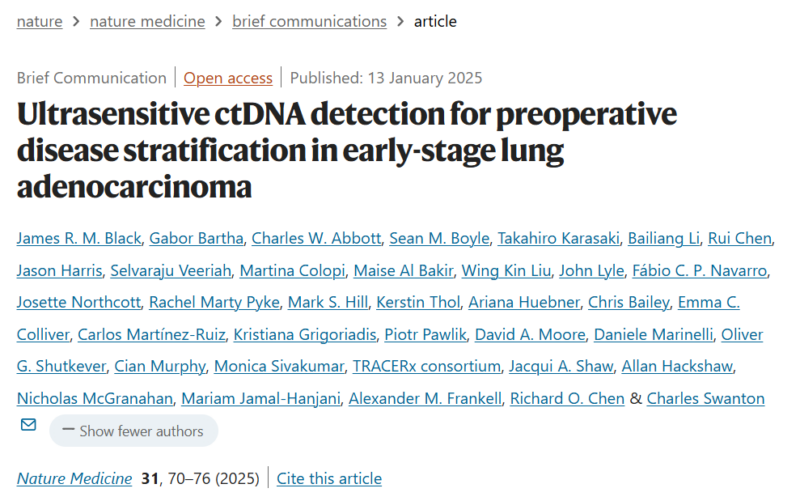Svetlana Nikic, Founder of Precision Oncology Consulting, shared a post on LinkedIn about a paper by James Black et al. published in Nature Medicine:
“Another important work published on ultrasensitive whole genome-based ctDNA detection in breast cancer.
This study analyzed ctDNA in 617 plasma samples from 78 breast cancer patients (across different subtypes).
Key findings include:
- High ctDNA detection at diagnosis: 98% of patients had detectable ctDNA before treatment.
- MRD detection predicts relapse and shortens survival: ctDNA detection during follow-up strongly correlated with higher relapse risk and shorter overall survival, with a median 15-month lead time before clinical relapse.
- MRD detected in all relapsed patients: 100% of relapsed patients showed detectable MRD, while no patients with consistently undetectable ctDNA relapsed.
- Superior sensitivity: The whole-genome approach demonstrated better sensitivity and longer lead time compared to exome-based MRD assays.
Exciting data demonstrating the superiority of WGS-based ctDNA detection approaches versus other methods!
Rodrigo Toledo, thanks for bringing this publication to my attention!”
Authors: James Black, Gabor Bartha, Charles Abbott, Richard Chen, Charles Swanton et al.

More posts featuring Svetlana Nikic.


